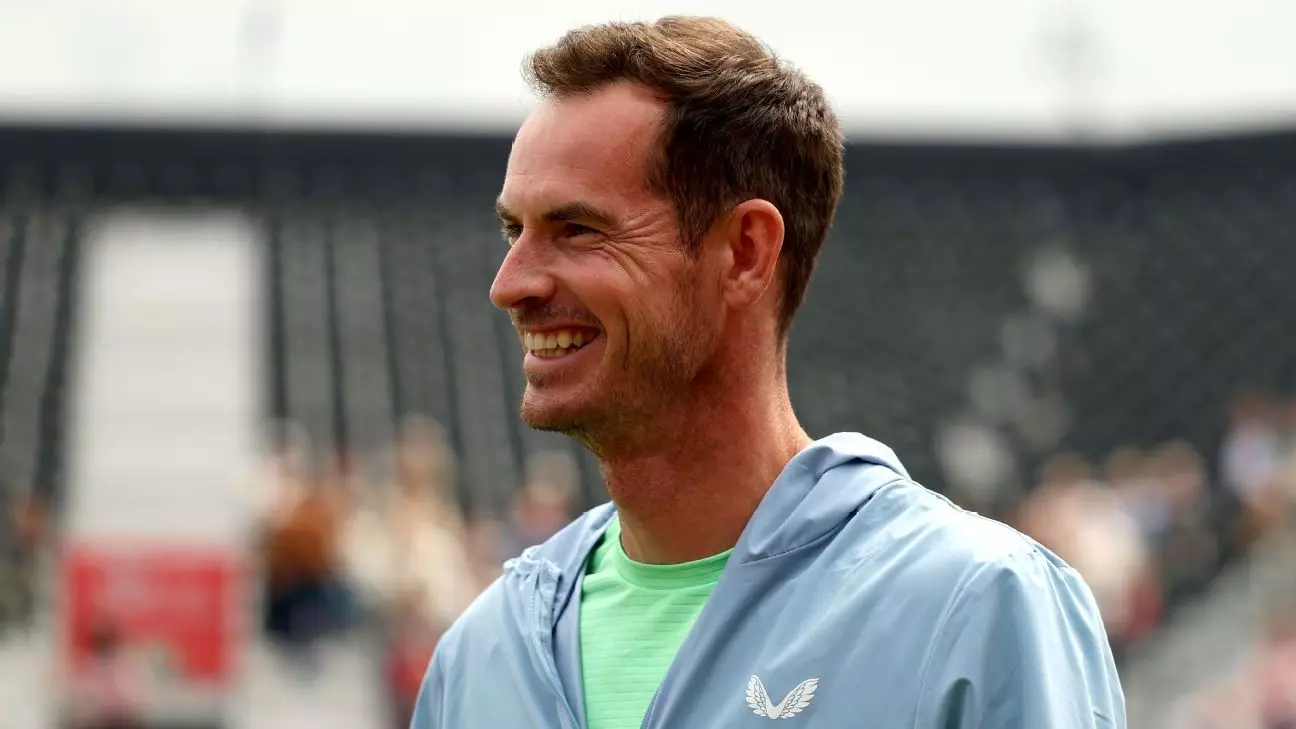Andy Murray’s foray into coaching, albeit briefly alongside the legendary Novak Djokovic, has captured the attention of the tennis world. Their collaboration, lasting just six months, presents a fascinating case study on the complexities of professional relationships in sports. Murray, a renowned player himself, approached this opportunity with an open mind, recognizing it as a unique learning experience. “It was a chance to learn from one of the best athletes of all time,” he remarked, reflecting a humility and eagerness to grow even after his retirement. Such an attitude is commendable; it resonates with many who believe that even the most accomplished individuals have room for further development.
Murray didn’t just step into this role for the accolades or the possibility of a championship title. Instead, he acknowledged the significant moments shared with Djokovic away from the court, highlighting that camaraderie is a vital aspect of sports that often goes unnoticed. The distinction he makes between the “results” and the “experience” emphasizes that success in sport isn’t solely defined by scores or trophies, but also by personal growth and relationships fostered along the way.
The Transition to Life Post-Competing
Since hanging up his racket, Murray has shown a stark transition in interests, embracing golf more than tennis. In his jovial yet self-deprecating commentary about his skills on the court, he illustrates a refreshing candor that many athletes struggle to convey as media pressure often compels them to maintain a polished image. “My tennis is diabolical,” he quipped during a recent exhibition match with young talents, offering an endearing insight into his post-retirement life. This shift not only reflects his versatility but also his willingness to embrace new passions as he navigates this next chapter.
Emphasizing the importance of this transition, Murray’s reflections inspire fellow athletes, suggesting that finding joy in different pursuits after intense competition is not only acceptable but encouraged. The sports world can be all-consuming; thus, choosing to step back and explore new avenues can yield profound personal benefits.
A Future in Coaching?
Murray has left the door ajar for a future in coaching, although he’s cautious about jumping back into that role immediately. His statement, “I wasn’t planning on going into coaching as soon as I finished playing,” signals thoughtful consideration about his professional direction. For many athletes, the coaching pathway can feel like a natural progression; however, Murray’s contemplative stance demonstrates his commitment to ensuring that when he decides to step into this role, it aligns with his passions and long-term goals.
In a field rife with expectations and challenging dynamics, it’s refreshing to see someone of Murray’s stature approach their career with such introspection. Should he choose to return to coaching, one can only imagine the wealth of knowledge and life lessons he could impart to the next generation of tennis players. Still, this decision should come from a place of true desire rather than obligation, which ultimately might yield the most rewarding outcomes for both him and his future mentees.

